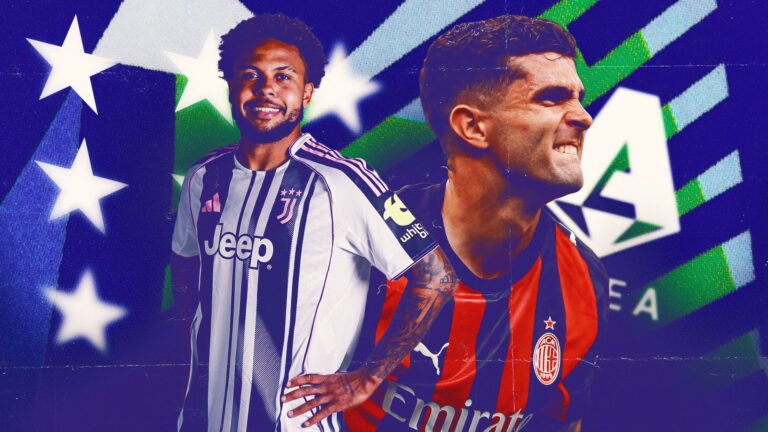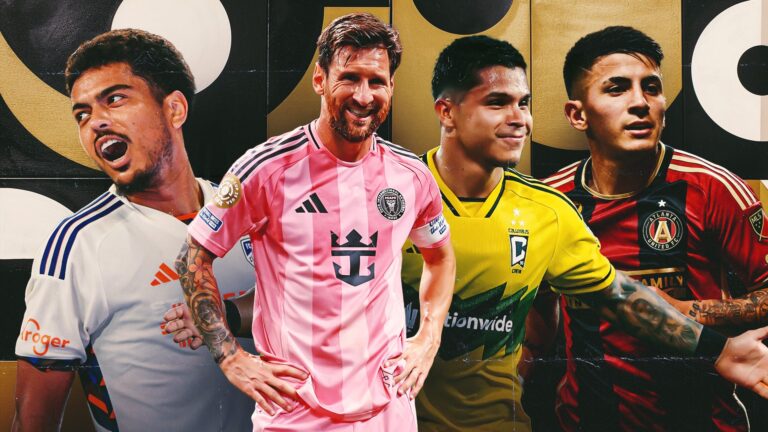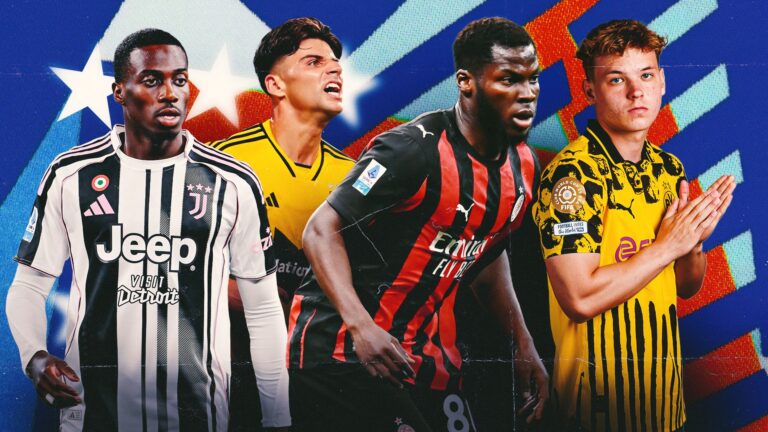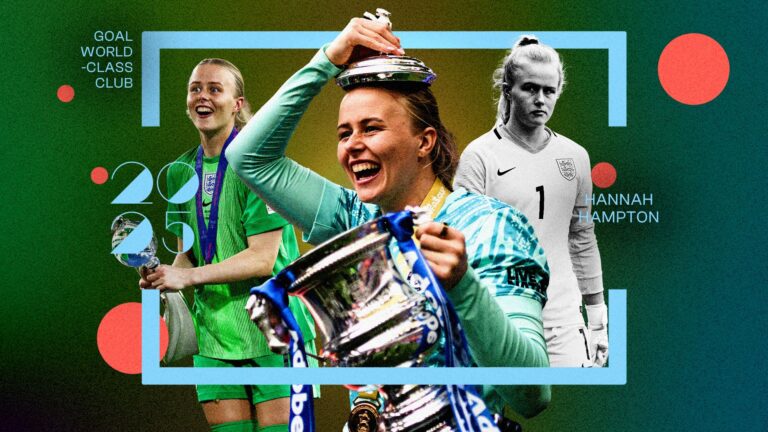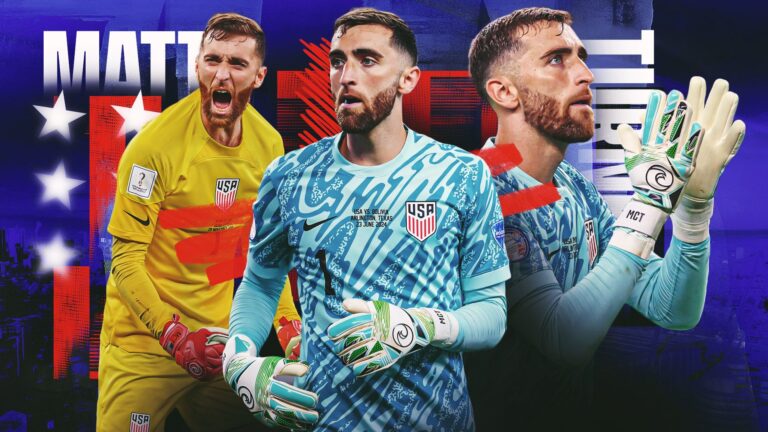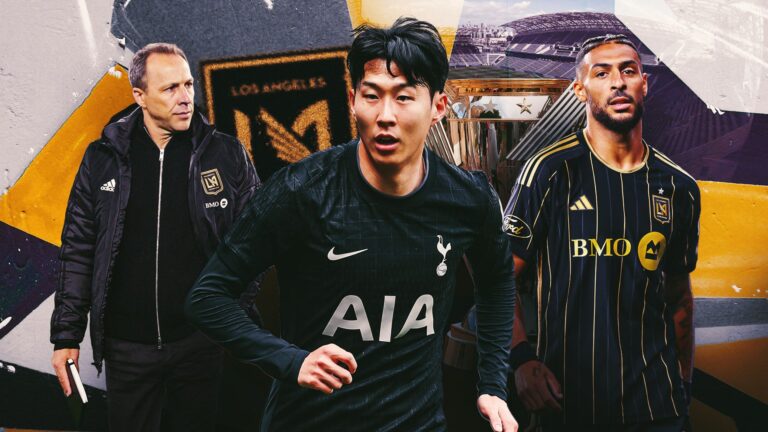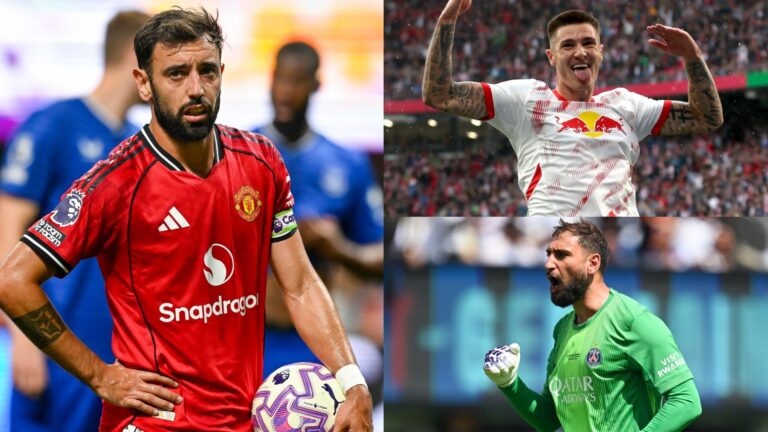It’s May 2025. With a rather casual nonchalance, Mario Balotelli announced the end of his journey in European football with a smile, during a wonderful interview with Italian state television Rai. "I’m a little tired of everything that happens around European football," he said. Asked where he’d be heading next, he announced: "America. I would like to play for another two or three years before I stop."
It sounded less like a departure and more a quiet retreat. Perhaps this really was the last dance for a player who, for most of his football career, had been battling with the world, as well as demons within himself. Balotelli, soon to be 35 years old, was, at one stage of his career, considered to be ال most interesting personality within the entire sport. And at the same time, he was viewed by many as being an unruly rogue who made far too little of his talent.
Rebel United brings you the story of one of football’s most talented, and highly-strung, enigmas.








It’s May 2025. With a rather casual nonchalance, Mario Balotelli announced the end of his journey in European football with a smile, during a wonderful interview with Italian state television Rai. “I’m a little tired of everything that happens around European football,” he said. Asked where he’d be heading next, he announced: “America. I would like to play for another two or three years before I stop.”
It sounded less like a departure and more a quiet retreat. Perhaps this really was the last dance for a player who, for most of his football career, had been battling with the world, as well as demons within himself. Balotelli, soon to be 35 years old, was, at one stage of his career, considered to be ال most interesting personality within the entire sport. And at the same time, he was viewed by many as being an unruly rogue who made far too little of his talent.
Rebel United brings you the story of one of football’s most talented, and highly-strung, enigmas.
A striker blessed with strength, a sleek elegance, and an inimitable goal-scoring instinct. A natural contender for the Ballon d’Or, and this at a time when Cristiano Ronaldo and Lionel Messi were in their absolute prime. The child of refugees, regarded as a symbol of a new, more diverse إيطاليا, although large parts of the European nation did not want him. A boy with a lot of mischief in his head, but selected by Time Magazine in 2013 as one of the 100 most influential people of the year, alongside Barack Obama, Jay-Z, Steven Spielberg and Beyonce.
At that time Balotelli was a 22-year-old forward with bags of potential, turning out for مانشستر سيتي and the Italy وطني team. A terror for his coaches and, in his prime, for defenders as well. Creator of the first global football meme and a never-silent voice against racism in our world.
This latest decision, to turn his back on Europe, comes after another failed stint in his homeland at جنوة, where he failed to score in six appearances in 2024-2025. The lack of output? According to Balotelli, that was the result of his coach, Patrick Vieira, being jealous of him. It again posed the question that has frequently followed the striker during his career – is this towering figure with kind eyes and yet often a grim look a rebellious free spirit? An eternal fighter against authorities and injustices, a misunderstood genius that does things his way? Or is he an incorrigible rogue who lacks discipline and maturity? Should he finally take some responsibility and place the blame on himself?
The lines between rebel and ruffian are fluid for many people, and the older Balotelli gets – with his performances on the field also waning – the less inclined people are to appreciate those special aspects of him that landed him on the cover of Time Magazine.
Balotelli’s story is a labyrinth of contradictions: a forward who can caress the ball like few other players of his stature, but who can also smash it into the top corner with brute force, making you fear for the net. A boy who often had mischief in mind but never smiled after scoring the most beautiful goals. A man who became a global symbol against racism while simultaneously throwing darts at youth players. A son of African immigrants who became a hero for Italy yet was mocked with monkey chants by his own supporters. A child who repeatedly underwent intestinal surgery and was adopted by a wealthy Italian foster family on the advice of the authorities. He spent a lot of time his adopted Balotelli family but would also see the Barwuahs – his parents and his siblings – on weekends.
And yet: the feeling of having been abandoned never left Balotelli. It is the theme of his life. Him against the rest of the world. Why always me?
There are moments in sports that transcend the mundane outcome. Players become icons, cultural symbols that point far beyond the game itself. June 28, 2012, saw the birth of such a moment, and it belonged to Mario Balotelli. In the semi-final of the European Championship in Warsaw, Italy faced a ألمانيا team that were considered the overwhelming favourite. Unbeaten and dominant, Germany had their Golden Generation that would become world champions two years later. The Azzurri, meanwhile, had the almost ageless Gigi Buffon, the king of swagged in Andrea Pirlo, and the unpredictable maverick Balotelli, who was just 21 years old at the time. In this game, he produced a performance of brutal efficiency and breathtaking beauty. This was Balotelli’s coming of age.
For the first goal, in the 20th minute, Antonio Cassano, another lovable madman of world football, maneuvered past two German defenders at the left edge of the penalty area and crossed the ball into the box. There, Balotelli rose with force, shrugged off his markers and headed an unstoppable effort into the net. But it was the second goal of the night that would make him world-famous, an immortal meme.
In the 36th minute, Riccardo Montolivo sent a long, high ball from his own half into Balotelli’s path. His control to cushion the ball was gentle, before he embarked on an unstoppable sprint towards the goal. Philipp Lahm ran after him, but he didn’t have the slightest chance of catching up to Balotelli. And then the finish: a shot of such power and precision, it sounded like the crack of a whip as the ball smashed under the crossbar into the net. Manuel Neuer, probably the best goalkeeper in the world at the time, didn’t even move.
Yet what happened after this goal would become even more noteworthy than Balotelli’s performance. The Italian forward tore off his shirt, stood motionless and then flexed every muscle in his upper body, staring into the distance. There was no hint of joy on his face, only a grim, relentless intensity. It was reminiscent of the Incredible هالك. Balotelli himself later said he wanted to show the liberation from slavery, the breaking of chains. There he was, the rebel delivering a message. Time Magazine wrote of the celebration: “‘Here is my black Italian skin,’ he seemed to say, an Italian hero, black and proud, inviting all of Italy to embrace him – and with him a different concept of the boundaries of Italian identity”.
At that moment, Balotelli also became the canvas for a global projection. The pose became the first worldwide football meme. Balotelli as Hulk, Balotelli as a ballerina, Balotelli on the moon, Balotelli on the Titanic, Balotelli as a construction worker – “Balo everywhere”. He had transformed from a football star to a phenomenon of pop ثقافة. This one pose, this one moment, perfectly encapsulates the entire enigma of Balotelli. It combines all facets of his personality into a single, indelible image.
Without the brilliance of the goal that preceded the celebration, it couldn’t have happened. Only a moment of such class could justify such a reaction. It appeared in political interpretation, his conscious, or unconscious, rebellion against the racism he was incessantly exposed to. And of course, there was something disrespectful in the celebration, his opponents must have felt humiliated, first by the shot and then by the pose. The global spectacle was finally reflected in the meme culture, which captured his complex gesture, stripped it of its deep meaning, and turned it into an easily consumable joke. In that moment, genius, rebel, rogue, and icon all met and became one.
It was the pinnacle of Balotelli’s career. But for a player to reach their peak at just 21, they’re going to have to work incredibly hard from that moment on to avoid a decline. Balotelli, though, was not willing to do so.
From superhero to laughingstock, it was always a thin line for Mario Balotelli. If the night in Warsaw was the dazzling peak of his career, then two particular moments were the humiliation. Actions nurtured by childish mischief, dangerous recklessness, and sheer provocation.
First came the incident of throwing darts at a youth team player out of boredom, in March 2011, before a little over six months later Balotelli set off fireworks in his bathroom just 36 hours before the derby against مانشستر يونايتد, causing £400,000-worth of damage. As if nothing had happened, though, he scored two goals in that game – a memorable 6-1 triumph for City at Old Trafford.
Go further back, and shortly after arriving in إنجلترا, he had wrecked his Audi R8 on the way to training and gave the deadpan response to the police officers who asked him why he was carrying £5,000 in cash: “Because I’m rich.” The City fans adored him for these antics and even composed a chant to pay homage to their rebel of a forward.
Indeed, alongside the childish behavior was an alarming lack of discipline on the pitch. He collected red cards like Panini stickers. A brutal kung-fu kick at chest height to then-Dynamo Kyiv defender Goran Popov and a deliberate whack to the head of then-Tottenham midfielder Scott Parker were just two notable incidents, while repeated scuffles in training, even with his mentor Roberto Mancini, would occur.
At the centre of this era of madness, however, stands a moment that, much like the Hulk celebration, became an iconic symbol: the ‘Why always me?’ T-shirt. After his first goal in that 6-1 triumph against United, he lifted his jersey to reveal the three simple words. Many critics interpreted the gesture as sheer arrogance. The truth was likely more complex. “It was a message to all the people who talk bad about me and don’t know me, so I just asked: ‘Why always me?'”, Balotelli said on one occasion when looking back.
It was not meant to be a display of arrogance but a plea for peace. It was here, in this moment, that the toxic but symbiotic relationship between Balotelli’s escapades and his global fame was revealed. His scandals were not just a side effect of his career; they were its engine. The truth is that Balotelli’s fame, catapulted by the widespread media coverage, also appeared to reflect deep-rooted personal problems, leading to ever-new, ever-more erratic actions. Balotelli was both the architect and the victim of his own myth. The question ‘Why always me?’ was therefore not rhetorical, but existential.
To understand Balotelli’s behaviour, one must know the story of his childhood. His escapades, his arrogance, and his problems with authority are likely visible symptoms of deep wounds that never healed. His life did not begin with childlike joy but with pain and separation. Born in 1990 in Palermo to Ghanaian immigrants, he suffered from a life-threatening intestinal disease requiring a series of operations in his first year of life. Before he was three years old, his biological parents, who lived in poverty, entrusted him to the Balotellis, a foster family in Brescia. He never overcame this experience of separation. “They say abandonment is a wound that never heals,” he said in an interview back in 2008, “I just say that an abandoned child never forgets.” This feeling of being abandoned by his family of origin became a central trauma that would shape his entire life.
However, there are many footballers with difficult upbringings, and not all become problematic figures like Balotelli. Yet for him, this personal feeling of uprooting was compounded by state-imposed injustice. Although he was born and raised in Italy, he had to wait until his 18th birthday to apply for Italian citizenship. He still feels this as a roaring injustice, as he recounted again, via Italian network Rai. The feeling of being unjustly treated became another life theme. As much as it was justified at times, such as with citizenship rights issue or when encountering racism, there were other times when it seemed to serve as a convenient excuse to justify mistakes being made. From this foundation of pain, abandonment, and the feeling of injustice grew a defence mechanism – a “defensive armor of arrogance,” as it was once described on SPOX.
If Balotelli’s personal demons are one side of his story, then the fight against racism in Italy is the other. In this scenario, he becomes an unwitting rebel, a symbol of the painful transformation of an entire nation.
He did not seek that role, but his skin color and fame thrust it upon him. The racism he faced in Italy was not subtle. It was brutal, open, and, for a time, omnipresent. The chant: ‘There are no black Italians’ echoed through the stadiums at the start of his career, becoming a cruel mantra aimed at denying him his right to exist in his own birthplace. Fans threw bananas at him and imitated monkey sounds whenever he was on the ball. Even when he played for the national team, he experienced rejection. “Racism,” he once said, “only started when I started playing football.”
Before Euro 2012, Italy’s largest sports newspaper, جازيتا ديلو سبورت printed a cartoon depicting Balotelli as King Kong on Big Ben – a racist image that enraged Balotelli. After protests, the paper issued a half-hearted apology, saying it wasn’t the “best product” of their cartoonist.
Balotelli thus became the face of the ‘Balotelli Generation’, those children of immigrants born in Italy who fight for their recognition and belonging. His reactions to the hate were often impulsive but powerful in their effect. When racially abused during a 2019 match with his then-club Brescia in Verona, he took the ball and angrily kicked it into the stands. He wanted to leave the field but was persuaded by team-mates and opponents to continue.
This act of open defiance forced Italy into a debate many would have preferred to avoid. Suddenly, he was, as كورييري ديلا سيرا wrote, the ‘testimonial’ for the fight against racism. His situation revealed a bitter truth felt by many black people in predominantly white societies, not only in Italy. Balotelli felt his identity as an Italian was conditional – a reward only granted to him in moments of triumph that he had to engineer himself. When he, like against Germany in 2012, became a national hero, he was ‘Super Mario’. He was one of them. But as soon as success deserted him, when he failed at club level or was just generally perceived to have messed up again, he became the refugee child who did not belong. And so Balotelli fought on the pitch – not only for victories, but for his fundamental right to belong.
In the end, what remains is the image of a man who could have become anything he wanted and yet he never fully achieved what his talent promised. “I think I’m a genius, but not a rebel. I have my life, my world. I do what I want without bothering anyone,” Balotelli once said. But this self-perception starkly contrasts with the reality of a career that, since that magical night in Warsaw in 2012, has essentially been a long story of untapped potential.
His career is the curriculum of failure, if one applies the standards set by his extraordinary talent. The stages after 2012 – AC Milan, Liverpool, OGC Nice, Olympique مرسيليا, and later an odyssey through smaller clubs – were marked by brief highs and deep, mostly self-inflicted, lows.
Now he wants to go to America. As a reformed man? Perhaps not, but as someone for whom the anger no longer runs so deep. “I could have done more, but I am happy,” he said, via Rai. Has Balotelli finally come to terms with himself and the world? Can this player, whose entire existence was a spectacle of noise, anger, and fleeting flashes of brilliance, ever truly find peace? The question remains open, but judging by his beaming smile during his appearance on Italian TV, he at least seems contented.


